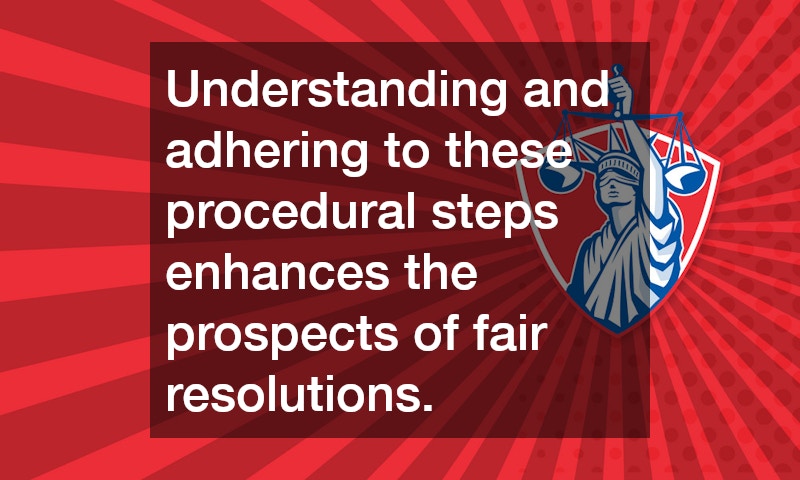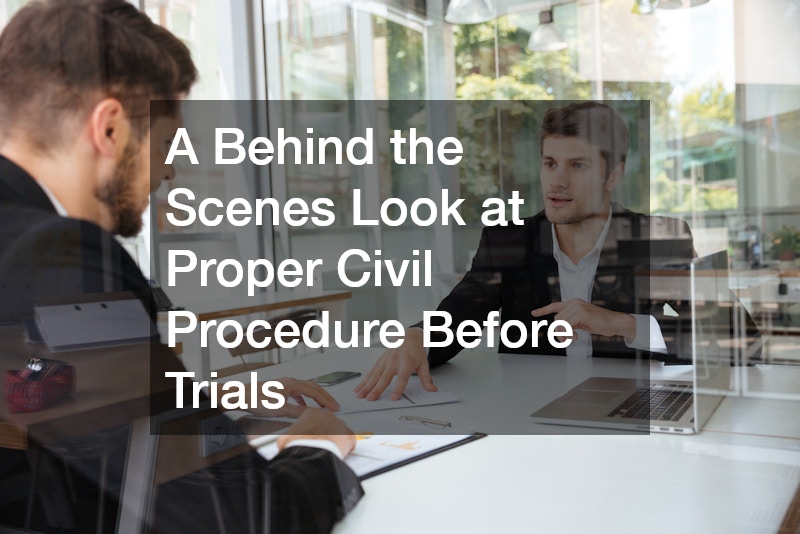Disclaimer: This website shares legal information for educational purposes only and does not constitute legal advice. Please consult a licensed attorney for advice specific to your situation.
The realm of civil litigation is both vast and intricate, demanding a meticulous attention to detail before any case can proceed to trial. Central to this process is understanding the proper civil procedure before trials, a framework that ensures justice is served comprehensively and fairly. This article delves into the critical steps involved in this stage, offering a behind-the-scenes look at what transpires before the courtroom battles begin.
Understanding Jurisdiction and Venue
The first critical step in proper civil procedure before trials is determining the correct jurisdiction and venue for the case. Jurisdiction refers to the authority granted to a court to hear a case, determining whether a state or federal court is appropriate. Venue, on the other hand, concerns the geographic location where a court with jurisdiction may hear the case.
Determining jurisdiction involves assessing whether the court has authority over the parties or the subject matter in dispute. Factors like the nature of the case and the residences of the parties can influence this decision. Choosing the correct venue ensures that the proceedings occur in a location that is convenient for all parties involved.
An incorrect choice of jurisdiction or venue can result in delays or the dismissal of a case. It is essential for legal representatives to diligently evaluate these aspects early in the procedure. This initial consideration lays the foundation for an efficient and fair trial process.
Commencing Legal Action
With jurisdiction and venue established, the next step involves filing the appropriate legal pleadings. The complaint, typically initiated by the plaintiff, outlines the allegations, supporting facts, and the relief sought. Defendants then respond with an answer, potentially including affirmative defenses and counterclaims.
The pleadings set the stage for the trial by clearly identifying the issues at hand. Precision in drafting these documents is crucial, as they form the basis of what will be analyzed during trial. A well-crafted pleading can significantly influence the direction and outcome of the litigation process.
Throughout this phase, parties may also engage in motions to dismiss if there are perceived deficiencies in the pleadings. These motions challenge the sufficiency of the opposing party’s claims without delving into factual disputes. Addressing such preliminary issues refines the focus of the litigation process before entering the discovery stage.
Navigating the Discovery Process
Discovery is a cornerstone of civil procedure before trials, enabling parties to exchange relevant information and eliminate surprises. Through depositions, interrogatories, and requests for production, each party gathers facts to build their case. This phase is designed to streamline proceedings by fostering transparency and facilitating settlements.
Depositions involve oral questioning of witnesses under oath, providing invaluable insights that shape trial strategies. Interrogatories, written questions exchanged between parties, demand detailed responses that further illuminate aspects of the case. By producing relevant documents and evidence, each party gains a comprehensive understanding of the strengths and weaknesses of their own and the opposing case.
The discovery process often reveals pivotal information, enabling parties to accurately assess the potential outcomes of a trial. Such transparency encourages settlements, allowing disputes to resolve without the need for prolonged litigation. Thus, meticulous discovery plays a vital role in achieving fair outcomes and conserving judicial resources.
Engaging in Pre-Trial Motions and Conferences
As the trial approaches, parties engage in pre-trial motions to address specific legal issues and streamline the ensuing proceedings. These motions can include requests for summary judgment, which can resolve disputes without a full trial by demonstrating that no genuine issues of material fact exist. Additionally, motions in limine may be filed to prevent certain evidence from being presented at trial.
Pre-trial conferences are convened to provide a forum for judges and attorneys to discuss the logistics of the upcoming trial. During these meetings, trial dates, witness lists, and other procedural matters are established, ensuring a smooth progression once the trial begins. Such interactions allow for further settlement discussions, often resulting in resolutions without fully engaging in trial.
The proper civil procedure before trials is essential for the fair and effective administration of justice in civil litigation. By carefully navigating jurisdiction, pleadings, discovery, and pre-trial activities, parties ensure that cases are well-prepared for trial. Understanding and adhering to these procedural steps enhances the prospects of fair resolutions and upholds the integrity of the judicial system.
.



